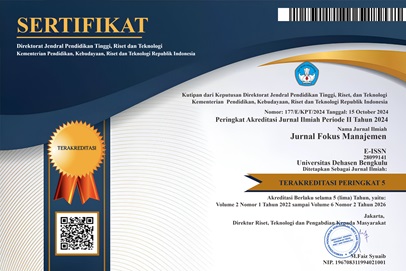Transformation Of Sharia Business Management Governance In The Digital Era
Abstract
This study aims to analyze the transformation of Sharia business governance in the digital era by emphasizing the role of the Sharia Supervisory Board (SSB), the integration of modern technology, as well as collaborative and multi-stakeholder governance models. A qualitative approach with a case study design was employed to examine the transformation of Sharia business governance in the digital era. Data were collected through in-depth interviews, participatory observation, and document studies involving practitioners, academics, regulators, and the Sharia Supervisory Board. Data analysis was conducted using the Miles and Huberman interactive model, with validation through source and method triangulation. The findings reveal that the utilization of digital technologies such as AI, blockchain, and big data plays a crucial role in enhancing transparency, accountability, and efficiency in Sharia business governance. This study provides a conceptual contribution to the development of a digital-based Sharia governance framework relevant to modern challenges. The results further indicate that implementing technologies such as artificial intelligence, blockchain, and big data can significantly improve the effectiveness, transparency, and accountability of digital Sharia governance. Moreover, the SSB not only functions as a supervisory body but also as a strategic partner in promoting digital innovation aligned with the objectives of maqāṣid al-sharī‘ah. The study also emphasizes that a collaborative and multi-stakeholder governance model is essential to strengthen public trust and enhance competitiveness at the global level. Therefore, adaptive, innovative, and participatory digital Sharia governance can serve as a key to building a sustainable, inclusive, and competitive Sharia business ecosystem in the era of digital transformation.
Downloads
Copyright (c) 2025 Bahtiar Bahtiar, Suarifqi Diantama, Teguh Arlovin

This work is licensed under a Creative Commons Attribution-ShareAlike 4.0 International License.
An author who publishes in the Jurnal Fokus Manajemen (JFM) agrees to the following terms:
Author retains the copyright and grants the journal the right of first publication of the work simultaneously licensed under the Creative Commons Attribution-ShareAlike 4.0 License that allows others to share the work with an acknowledgement of the work's authorship and initial publication in this journal
Submission of a manuscript implies that the submitted work has not been published before (except as part of a thesis or report, or abstract); that it is not under consideration for publication elsewhere; that its publication has been approved by all co-authors. If and when the manuscript is accepted for publication, the author(s) still hold the copyright and retain publishing rights without restrictions. For the new invention, authors are suggested to manage its patent before published. The license type is CC-BY-SA 4.0.
Jurnal Fokus Manajemen (JFM) is licensed under a Creative Commons Attribution-ShareAlike 4.0 International License.
You are free to:
Share — copy and redistribute the material in any medium or format
Adapt — remix, transform, and build upon the material
for any purpose, even commercially.
The licensor cannot revoke these freedoms as long as you follow the license terms.






